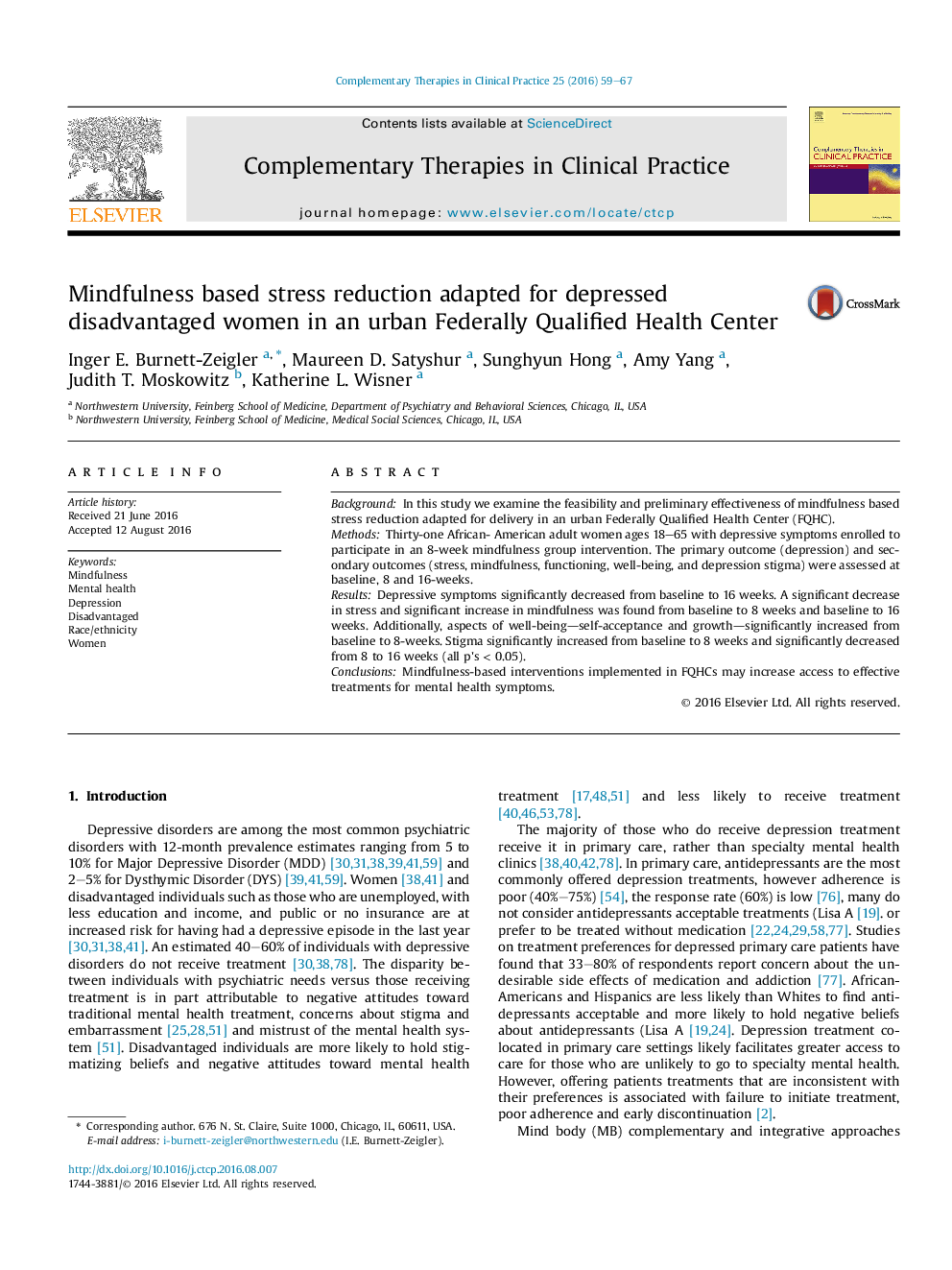| Article ID | Journal | Published Year | Pages | File Type |
|---|---|---|---|---|
| 2628664 | Complementary Therapies in Clinical Practice | 2016 | 9 Pages |
BackgroundIn this study we examine the feasibility and preliminary effectiveness of mindfulness based stress reduction adapted for delivery in an urban Federally Qualified Health Center (FQHC).MethodsThirty-one African- American adult women ages 18–65 with depressive symptoms enrolled to participate in an 8-week mindfulness group intervention. The primary outcome (depression) and secondary outcomes (stress, mindfulness, functioning, well-being, and depression stigma) were assessed at baseline, 8 and 16-weeks.ResultsDepressive symptoms significantly decreased from baseline to 16 weeks. A significant decrease in stress and significant increase in mindfulness was found from baseline to 8 weeks and baseline to 16 weeks. Additionally, aspects of well-being—self-acceptance and growth—significantly increased from baseline to 8-weeks. Stigma significantly increased from baseline to 8 weeks and significantly decreased from 8 to 16 weeks (all p's < 0.05).ConclusionsMindfulness-based interventions implemented in FQHCs may increase access to effective treatments for mental health symptoms.
